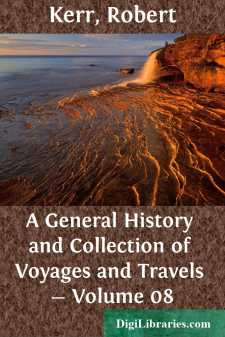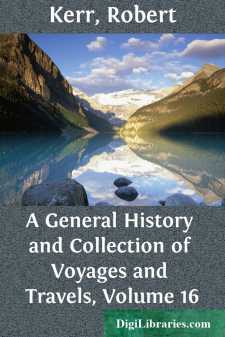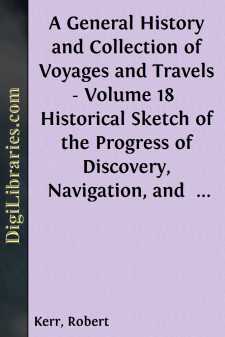Categories
- Antiques & Collectibles 13
- Architecture 36
- Art 48
- Bibles 22
- Biography & Autobiography 813
- Body, Mind & Spirit 141
- Business & Economics 28
- Children's Books 12
- Children's Fiction 9
- Computers 4
- Cooking 94
- Crafts & Hobbies 4
- Drama 346
- Education 46
- Family & Relationships 57
- Fiction 11826
- Games 19
- Gardening 17
- Health & Fitness 34
- History 1377
- House & Home 1
- Humor 147
- Juvenile Fiction 1873
- Juvenile Nonfiction 202
- Language Arts & Disciplines 88
- Law 16
- Literary Collections 686
- Literary Criticism 179
- Mathematics 13
- Medical 41
- Music 40
- Nature 179
- Non-Classifiable 1768
- Performing Arts 7
- Periodicals 1453
- Philosophy 64
- Photography 2
- Poetry 896
- Political Science 203
- Psychology 42
- Reference 154
- Religion 513
- Science 126
- Self-Help 83
- Social Science 81
- Sports & Recreation 34
- Study Aids 3
- Technology & Engineering 59
- Transportation 23
- Travel 463
- True Crime 29
A General History and Collection of Voyages and Travels - Volume 14
by: Robert Kerr
Publisher:
DigiLibraries.com
ISBN:
N/A
Language:
English
Published:
1 year ago
Downloads:
12
*You are licensed to use downloaded books strictly for personal use. Duplication of the material is prohibited unless you have received explicit permission from the author or publisher. You may not plagiarize, redistribute, translate, host on other websites, or sell the downloaded content.
Description:
Excerpt
GENERAL INTRODUCTION.
Whether the unexplored part of the Southern Hemisphere be only an immense mass of water, or contain another continent, as speculative geography seemed to suggest, was a question which had long engaged the attention, not only of learned men, but of most of the maritime powers of Europe.
To put an end to all diversity of opinion about a matter so curious and important, was his majesty's principal motive in directing this voyage to be undertaken, the history of which is now submitted to the public.[1]
[1] It is scarcely conceivable, that any men of science in the end of the 18th century, should have insisted on mathematical reasons for the supposition of a southern counterpoise; and therefore, as is mentioned by Mr Wales, in his introduction to the account of the astronomical observations made during this voyage, it must be held, that the opinion which induced his majesty to order the voyage, for the purpose of discovering a continent or large islands towards the South Pole, was founded on mere probability. That there is no necessity for such an existence, is very certain, for the preservation of the earth's motion on its axis can be readily accounted for without it; yet, reasoning from analogy, and considering the successful experiment of Columbus, there seemed sufficient grounds, independent of the alleged discoveries of Bouvet and others, to expect that some lands might be found there. After this, it required little additional excitement of fancy to believe, that if there, and if found, they might be no less important to the discoverers, than America was judged to be to the Spaniards. Men are not easily cured of their prejudices, when the foundations on which they are built, derive validity from the hope of interest. It is impossible to tell what kind and degree of advantages, certain sanguine specialists anticipated from the Terra Australis. Excepting the article of the prolongation of lifead infinitum, it is questionable, if the philosopher's stone, when discovered, could have accomplished more; and even with respect to that, it might have been imagined, that the soil and climate would so materially differ from any other before known, as to yield some sovereign elixir or plant of life-giving efficacy. That it was charitably hoped, they would be no less serviceable in another particular, of perhaps fully greater consequence, may be inferred from a passage in Dr Hawkesworth's reply to Mr Dalrymple, appended to his Account of Cook's First Voyage, &c., second edition. "I am very sorry," says he, "for the discontented state of this good gentleman's mind, and most sincerely wish that a southern continent may be found, as I am confidentnothing else can make him happy and good-humoured!" Mr Dalrymple seems to have set no bounds to his expectations from the discovery, and accordingly thought that no bounds ought to be set to the endeavours to accomplish it. Witness the very whimsicalnegativeandaffirmativededication of his Historical Collection of Voyages, &c....











